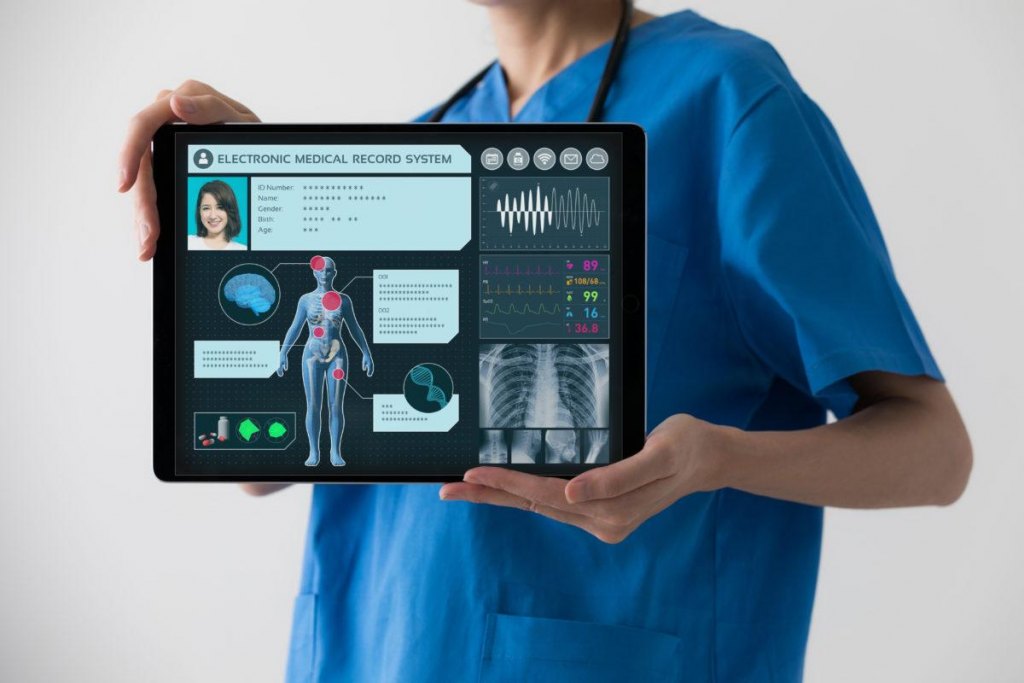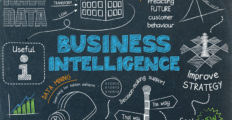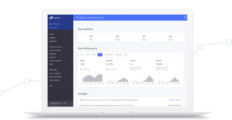Doctors provide better treatment to patients when they have complete and accurate information. EHRs can enhance disease diagnosis and reduce or even prevent medical mistakes, thereby enhancing patient outcomes. Electronic Health Record (EHR) software has become indispensable in the ever-changing healthcare environment. EHR systems offer numerous advantages, including increased efficiency and improved patient care. Patient safety and medical billing accuracy are two critical areas significantly impacted by EHR software.
Healthcare professionals find organizing and storing patient medical histories tedious due to the large amount of data. Medical consumers want fast, doctor-free data access. Digital solutions have replaced rows of cabinets full of paper files and frustrated health staff searching for information. EHRs fill these gaps.
Providers record demographics, progress notes, diagnoses, medications, treatment plans, allergies, immunizations, laboratory data, and test results in EHRs. EHR improves patient-clinician collaboration. Data accuracy and availability aid caregivers and healthcare professionals in critical situations. EHR lets multiple organizations securely share patient data to help doctors make decisions.

Enhancing Patient Safety with EHR Software
EHR software improves patient safety by improving data accuracy and accessibility. Electronic health records are a major benefit. Handwriting and lost documents are gone. EHR systems protect medical records from miscommunication and errors caused by manual record-keeping.
Prevent Possible Side Effects
EHR systems help providers prevent adverse events from drug interactions and food or drug allergies. Patient history and pharmaceutical data enable better treatment decisions that reduce side effects.
Medical support teams share inpatient EHRs to help specialists make patient care decisions. This ensures that medical professionals everywhere have the information they need to treat patients.
Make Use of Patient-Reported Data
EHRs use patient-reported data when available to improve patient safety. Wearables and other IoT healthcare devices collect more passive patient data that may be useful. Providers can currently use patient-reported data. Patient-reported data can fill gaps and allow providers to focus on other important patient health issues.
Help Patients Prevent Disease
EHRs can identify patients who need screenings. Preventative measures can detect kidney and colon cancer early on.
This educates patients on risk management. Patients can learn to identify risks and behaviors that increase their risk of preventable diseases, but they cannot avoid diseases and injuries. This can improve patient outcomes and reduce preventable diseases.
Improve Patient Compliance and Engagement
Improved patient outcomes depend on patient-provider communication. EHRs and patient portals strengthen relationships. Patients can better ask doctors about treatment after reviewing their records and doctors’ notes. Patients can easily contact their providers to fix mistakes. Medical outcomes improve as patients understand their treatment.
Transform Clinical Procedures
EHRs prevent patient stress. When patients see other doctors, need insurance information, or discuss lab results, practice staff can monitor them remotely. Evaluating every touchpoint helps practices find ways to reduce waiting time and patient intake time outside of patient-physician time.
Reducing Medical Billing Errors with EHR Software
EHR software greatly reduces medical billing errors. Automated coding and documentation benefit. EHR systems automate billing and coding, reducing errors. EHRs reduce claim denials, improve accuracy, and speed billing by standardizing coding.
Verifying Patient Insurance Eligibility
Healthcare providers often fail to check patient insurance eligibility, which can lead to payment delays and claim denials. Cloud-based EHR software checks eligibility and pays physicians quickly. Medical practice management systems help clinicians manage revenue cycles. Healthcare billing systems verify insurance coverage, benefits, co-pays, deductibles, etc. in real time. Health billing systems reduce claim rejections and provide patients with all the information. Medical billing solutions verify insurance and expedite payments.
Automation of medical coding
Medical coding errors can cause claim rejections and payment delays. A medical billing system ensures clinicians receive full payment for their services. Medical coding converts medical reports, diagnoses, and procedures into medical codes. EHR software automatically flags code errors for review. Healthcare billing solutions automate clinical document management and data extraction. Cloud-based EHR software improves clinic performance and medical coding accuracy.
Management of insurance claims
Medical billing relies on claim management. EHR software speeds up data entry, claims submission, payment tracking, and reconciliation. Medical billing management automates all time-consuming tasks that can drain medical staff performance. Medical billing can scrub and submit claims electronically. Medical billing services providers can also detect fraud and manage claims denials. Medical billing applications promote integrated remittance management, track claims, and monitor claim status.
Healthcare analytics for medical billing and reporting
Cloud-generated health informatics financial data can be overwhelming. Telehealth and mHealth can use cloud-based medical billing software for data-driven decision-making. Integrated or collaborative care services can choose a medical billing solution with detailed reporting and analytics. Key performance indicators, top carriers, and medical records management are billing solutions. Cloud-based medical billing software can identify documentation errors and provide growth opportunities. Web-based medical billing software automatically generates error-free reports.
Integration of ICD10 codes
Cloud-based medical billing software manages ICD codes and helps providers upgrade to ICD-10. Your medical billing software should have the latest ICD-10 codes, which work faster and more efficiently than ICD-9 codes.

How can electronic health record (EHR) software assist physicians in billing?
Physicians EHR billing improves care. Thus, helping doctors manage their cases. Benefits include:
EHR improved billing accuracy. It tracks patient interactions, insurance, and payments. It simplifies payment tracking. It reduces fraud. It prevents insurer lawsuits from inaccurate payments.
They help doctors manage cases. First, EHRs make doctors accessible. Second, it updates history instantly. Each patient encounter uses this history. This gives doctors more time. Instead of waiting until closing time, they enter notes during appointments.
How Does Electronic Health Record Work for physicians?
Physician EHRs have many benefits. It records your patient’s medical history. Second, test results and clinical data are centralized. This keeps track of all patient care details. It offers 24/7 access to this data.
EHRs also let doctors share vital health data electronically. Nurses and pharmacists can easily share this data. So, they can share information about what medications were prescribed or how specific tests were run on each patient during their office visit (e.g., ECG).
Both parties have less paperwork. Doctors get lab results faster. Nurses can view patient charts without typing them out.
Physician Billing and EHR Software
Complex coding and documentation make physician billing difficult. EHR software is especially useful for tracking and documenting cardiac procedures and tests. EHR systems simplify physician-specific coding and documentation, ensuring compliance with complex billing guidelines. This reduces physician medical billing and coding errors.
EHR software improves cardiac test, imaging, and intervention tracking. EHR systems can efficiently track diagnostic.
Case Studies: EHR Software Impact on Patient Safety and Billing Accuracy in physician
Here physician case studies demonstrate how EHR software improves patient safety and billing accuracy.
Example: EHRs improved patient safety in a physicians practice. Electronic patient records ensured that critical information was always available to healthcare providers. Integrating medication management modules reduced medication errors. EHR communication improved specialist care coordination, improving patient outcomes and safety.
Conclusion
Healthcare safety and accurate billing are essential. EHR software improves patient safety and medical billing accuracy. EHR systems improve patient safety and billing accuracy by automating coding and documentation, medication management, and communication.
Medical billing services can save physicians time, money, and revenue. Billing Services for physicians can help healthcare practices streamline billing. Physicians, hospitals, and procedures must monitor their costs. Thus, they can limit anything else.























Leave a comment!